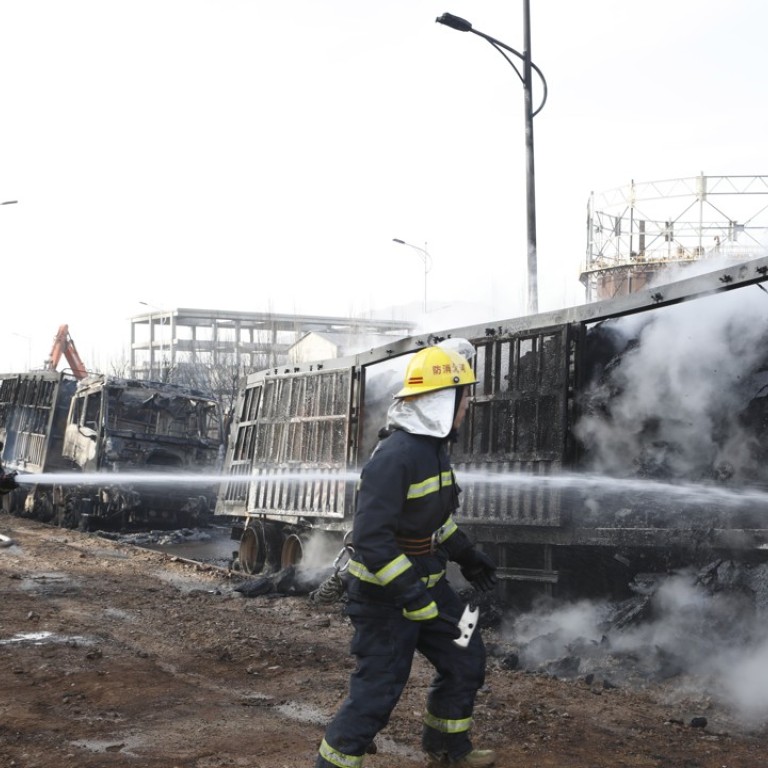
Mainland China must better enforce existing rules for workplace safety
- The nation has made progress in reducing the number of job-related fatalities in recent years
- But the regulatory framework needs greater support from authorities
The list of fatal workplace accidents on the Chinese mainland in recent months has received its grimmest entry yet – the deadly explosion of a gas tanker outside a chemical complex in Hebei province on Wednesday. A fireball swept along a road lined with vehicles, killing at least 23 people and injuring another 22. An investigation will determine what went wrong, but a common thread in most industrial tragedies is a failure to follow regulations in handling hazardous materials. A push for profits ahead of safety and lax oversight are often to blame.
That may not necessarily be the case with the truck blast at Zhangjiakou; accidents are sometimes unavoidable. But there is particular cause for concern given that the city’s reputation for safety needs to be strong as one of its districts will house eight venues for the 2022 Winter Olympic Games.
Authorities last month alerted companies and officials of the need for greater awareness as the year-end peak production season approaches. Risks are compounded by winter, with its heavy snow, falling temperatures and low visibility.
The mainland has made great strides in reducing its number of industrial accidents, a campaign spurred by catastrophes such as the one that befell the northeastern port city of Tianjin in 2015, when an explosion at a chemical warehouse killed 173 people. An overhaul of industrial and safety regulatory frameworks followed after an investigation revealed corners had been cut as a result of corruption and official collusion.
There has since been a marked improvement, with deaths from workplace accidents last year falling 12.1 per cent, to 38,000, from the level in 2016. More than 4.6 million on-site inspections were carried out, leading to a 58 per cent increase in fines for safety violations.
But as the economy moves towards greater domestic consumption, pressures are bound to rise. An estimated 1 billion tonnes of hazardous chemicals are already transported each year to industrial facilities employing tens of millions of workers. Promised reforms opening doors wider to foreign companies will increase competition. There will be a temptation to boost revenue by paying less attention to safety.
For all the progress, the mainland still has a lot of catching up to do to meet the standards of developed nations such as the United States and Britain; its workplace death rate is more than 10 times higher than theirs. It is too early to determine the cause of the explosion at Zhangjiakou, but there is no denying that the failings of the past still prevail. The biggest problem is enforcement, not a lack of safety laws and regulations.

